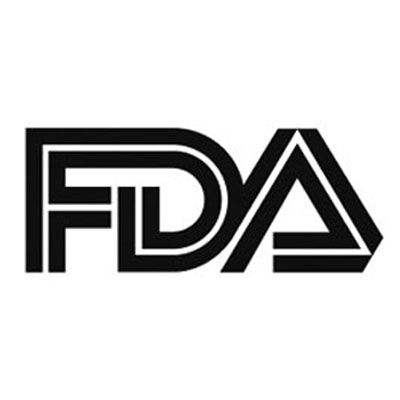FDA Grants Orphan Drug to Bispecific Antibody as Treatment of Thymic Epithelial Tumors
The FDA granted an Orphan Drug designation to KNO46 for the treatment of thymic epithelial tumors.

The FDA has granted an Orphan Drug designation to KNO46 for the treatment of thymic epithelial tumors, Alphamab Oncology, developer of this recombinant humanized PD-L1/CTLA-4 bispecific antibody, announced in a press release.1
Thymic epithelial tumors make up a group of thoracic tumors that predominantly included thymomas and thymic carcinoma and is known to occur in about 7000 to 10,000 cases this year alone in the United States. Cases of thymic epithelial tumors tend to be inoperable, and metastatic disease is associated with a very poor prognosis. Thymic epithelial tumor cells have high expression of PD-L1, which makes it possible for immune checkpoint inhibition to induce benefit in this setting.
There currently are no approved standard treatments for this patient population after they fail platinum-based chemotherapy. The overall response rate is below 20% with later-line chemotherapy or targeted therapy, and the median survival time is less than 1 year. This demonstrates an urgent need for effective treatments that can improve efficacy.
A phase 1 clinical trial (NCT03529526) presented during the 2020 American Society of Clinical Oncology (ASCO) Virtual Scientific Program demonstrated a high response rate with KNO46, as well as a long-lasting response time and good safety as treatment of patients with thymic epithelial tumors. The phase 2 registrational study has been initiated to treat thymic carcinoma with KNO46 and is currently planned to be carried out in over 10 different research centers in both the United States and China.
The poster for the phase 1a/1b study showed a favorable safety profile with promising clinical benefit with KNO46 as treatment of patients with advanced solid tumors who had failed prior immune checkpoint inhibitor therapy. Of the 29 patients enrolled to the study, the median duration of exposure to KNO46 was 12 weeks (range, 2-40), and 11 patients remained on treatment while 18 had discontinued due to disease progression in 13, adverse events (AEs) in 1, death in 1, and for other reasons in 3.2
Objective responses were observed in 3 (12.0%) of the 25 patients evaluable for efficacy, and the disease control rate was 52.0%. Ten patients achieved stable disease. The median progression-free survival (PFS) was 2.69 months (95% CI, 1.31-5.52), and the median overall survival (OS) had not yet been reached. At 3-months, the PFS rate was 41.0% (95% CI, 18.5-62.5), and the 6-month PFS rate was 21.9%. The 6-month OS rate was 88% (95% CI, 57.2-97.1), and the 9-month OS rate was 58.7% (95% CI, 8.3-89.2).
Treatment-related AEs of any grade occurred in 26 (89.7%) patients, while 2 (6.9%) experienced events of grade ≥3 in severity. The most common treatment-related AEs included pruritus (27.6%), rash (27.6%), asthenia (20.7%), fatigue (20.7%), pyrexia (17.2%), infusion related reaction (13.8%), alanine aminotransferase elevation (10.3%), and white blood cell count elevation (10.3%). Immune-related AEs also occurred in 11 (37.9%) patients, but none were grade 3 or higher.
KNO46 is the world’s first recombinant PD-L1/CTLA-4 bispecific agent, and its innovative designs included a proprietary CTLA-4 domain antibody with significant improvement in the safety profile. The bispecific antibody fused with a PD-L1 antibody was engineered to target the tumor microenvironment with high expression of PD-L1. The agent also uses the Treg clearing function.1
Preclinical and clinical trials have shown efficacy and significant reductions in toxicity with KNO46 and the potential to become a breakthrough therapy. The agent is being evaluated in about 20 different clinical trials across different stages in China and Australia for the treatment of 10 types of tumors, which include non–small cell lung cancer, triple-negative breast cancer, esophageal SCC, and pancreatic cancer. Data from these studies suggest promising efficacy and a safe preliminary profile for KNO46.
Based on the results from clinical trials in China and Australia, the FDA approved this agent to enter a phase 2 study. Phase 3 clinical trials have already started in China to evaluate the efficacy and safety of KNO46 in combination with platinum-based chemotherapy as treatment of patients with stage IV squamous cell non–small cell lung cancer.
Reference
1. Alphamab Oncology announced that the U.S. Food and Drug Administration (FDA) has granted orphan drug designation to KN046 for the treatment of thymic epithelial tumor. News Release. Alphamab Oncology. September 3, 2020. Accessed September 8, 2020. https://bit.ly/35k45bA
2. Zhau H, Ma Y, Zhang Y, et al. The preliminary efficacy and safety data of KNO46 in patients failed on prior immune checkpoint inhibitors therapy. J Clin Oncol 38: 2020 (suppl; abstr 3020). doi: 10.1200/JCO.2020.38.15_suppl.3020
Anticipating Novel Options for the RAI-Refractory DTC Armamentarium
May 15th 2023In season 4, episode 6 of Targeted Talks, Warren Swegal, MD, takes a multidisciplinary look at the RAI-refractory differentiated thyroid cancer treatment landscape, including the research behind 2 promising systemic therapy options.
Listen
No Improvement With Durvalumab vs Cetuximab in Advanced HNSCC
January 9th 2025The NRG-HN004 trial showed that durvalumab did not improve outcomes vs cetuximab in locoregionally advanced head and neck squamous cell carcinoma undergoing radiotherapy with contraindications to cisplatin, leading to early trial closure.
Read More